What is EOA?
Thirteen European academies of music are working together to develop national and international top talent.
On Tuesday 27 September, the official opening of the European Opera Academy (EOA) has taken place in Maastricht. The EOA is a collaboration of thirteen academies of music from twelve countries across Europe, each with one or more specializations. The objective is to use the specializations of the academies of music to provide top students in the field of national and international opera and music theatre with the opportunity to further develop their talents and to help them excel. The EOA is an initiative of the Conservatorium Maastricht (part of Zuyd University of Applied Sciences) and hopes to number twenty European partners by 2017-2018.
Centre of Excellence
The EOA is set to become a Centre of Excellence for postgraduate contract students from across the world. It is also open to a few exceptionally talented Bachelor’s, Master’s, and third cycle students from EOA partners. The selection procedure consists of an entry exam in front of a jury from the selected partner institute. Students are given the opportunity to specialize in whatever they choose and to meet their own market requirements by taking specific modules lasting different periods of time at the participating academies of music. This allows the EOA to offer an international programme with added educational value and unique opportunities for personalization. The academy will start with specializations for vocalists. The EOA plans to offer other specializations including design, libretto writing, composition, and direction.
Thirteen academies of music from twelve countries
Working with top talent is highly beneficial for these academies of music. Susanne van Els, head of Classical Music at the Maastricht Academy of Music and one of the leading classical musicians in the Netherlands, explains: ‘One of the most fascinating aspects of this model of European collaboration is that the participating institutes can develop their own specializations even further while the students can select an educational course that meets their specific needs.’
The following thirteen academies of music are partners of the EOA: Germany (Hochschule für Musik und Theater, Hamburg), Georgia (V.Sarajishvili Tbilisi State Conservatoire, Tbilisi), Ireland (Royal Irish Academy of Music, Dublin), Italy (Conservatorio di Musica Luigi Cherubini, Florence and Conservatorio di Musica Arrigo Boito, Parma), Croatia (Muzička Akademija Zagreb, Zagreb), Latvia (Jāzeps Vītols Latvian Academy of Music, Riga), The Netherlands (Conservatorium Maastricht, Maastricht), Poland (Academy of Music in Łódź, Łódź), Portugal (ESMAE – Superior School of Music and Performing Arts, Porto), Serbia (University of Arts, Belgrade), Sweden (Stockholm University of the Arts ‒ University College of Opera, Stockholm), and Switzerland (Haute Ecole de Musique de Genève, Geneva).
The EOA starts with 23 modules that reflect important aspects of the repertoire such as training techniques, language skills, and gaining stage experience in opera, as well as meeting an important part of the demands of modern music theatre.
Active modules in Novara
More info at EOA home page


